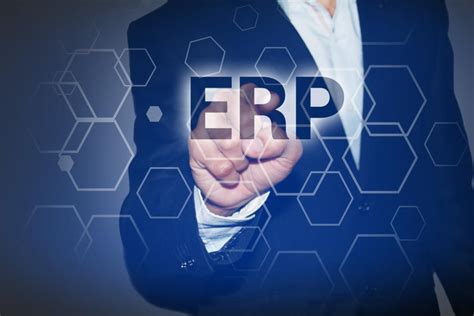[ad_1]
In the changing world of manufacturing, businesses must constantly outperform their competitors to thrive and succeed. A key strategy for achieving this goal is to integrate an Enterprise Resource Planning (ERP) system into their operations. Such systems play a significant role in simplifying processes, boosting effectiveness, and enhancing overall output. Nonetheless, it’s worth noting that not all ERP solutions are the same. Off-the-shelf options might not perfectly align with your business’s needs, which is why tailor-made customization solutions such as manufacturing management software are so important.
Appreciating the Significance of Personalization
When dealing with any of the manufacturing ERP system examples, customization is crucial. Adapting the software to suit your requirements instead of adjusting your operations to match a standard solution, customizing ERP software enables you to enhance your processes and make the most of your business operations to achieve maximum efficiency.
Improving Productivity Through Tailored Processes
Customizing your manufacturing ERP system offers an advantage. The flexibility to design workflows that precisely fit your business operations and requirements instead of relying on a standard, off-the-shelf solution that might not be tailored to your needs or processes. Tailoring workflows allows you to streamline operations by removing any steps or obstacles, leading to enhanced efficiency and seamless functioning.
Incorporating with Current Systems
Customization also offers the benefit of connecting your manufacturing ERP system with other software applications already in use by your business. Many companies depend on a range of tools for tasks such as accounting, inventory management, Customer Relationship Management(CRM), and supply chain optimization. Customization allows you to merge information from these systems into one cohesive platform. This integration streamlines processes by eliminating the need for data entry and minimizing errors that may arise from duplicating information across various applications.
Crafting Reports to Enhance Decision-Making
Having the right tools for reporting is vital when it comes to making informed choices and evaluating key performance indicators (KPIs). The standard reports offered by packaged ERP systems may not offer the insights needed to align with your distinct business objectives and plans effectively. Tailoring your reporting functions enables you to produce aids such as graphs and charts or develop reports that are specifically designed to meet your organization’s requirements. By gaining up-to-the-minute and pertinent insights into your operations and leveraging data to guide decisions, you can move closer to fulfilling your business goals effectively.
Optimizing the User Interface for a Better User Experience
The user interface (UI) of an ERP system plays an important role in enhancing employees’ productivity and usability, yet it is commonly underestimated. Customizing the UI enables you to create a design that aligns with the workflow structures of various user roles in your company. Personalizing the UI for each user based on their job functions and displaying relevant features to them will lead to a better navigation experience, for users to reduce training duration and ultimately boost efficiency across the board.
Finding the Balance
Customizing ERP systems can provide benefits for manufacturers by enhancing their functionality. However, extensive customization could pose challenges during software upgrades due to the need to balance it with proprietary features. Your IT department or external consultants may require efforts for software updates and version changes when customizing the system extensively.
Working Together with Consultants
For a tailored ERP system that caters to your unique manufacturing requirements both currently and in the future, reaching out to experienced consultants who focus on ERP implementations can offer significant advantages. This group has a wealth of expertise regarding customization possibilities across systems and can provide valuable insights on implementation best practices while tackling issues related to substantial system modifications.
Summary
Tailoring your manufacturing ERP system can offer substantial advantages in enhancing efficiency and workflow management while bolstering reporting features and user experience integration with various software seamlessly. Consider the trade-offs against potential upgrade needs critically as extensive customization poses challenges during software updates. Partnering with experienced consultants can facilitate a seamless implementation process. Gain a strategic edge over rivals by personalizing your manufacturing ERP system to align closely with your specific business requirements and navigate success in the dynamic industry environment.
[ad_2]
Source link











